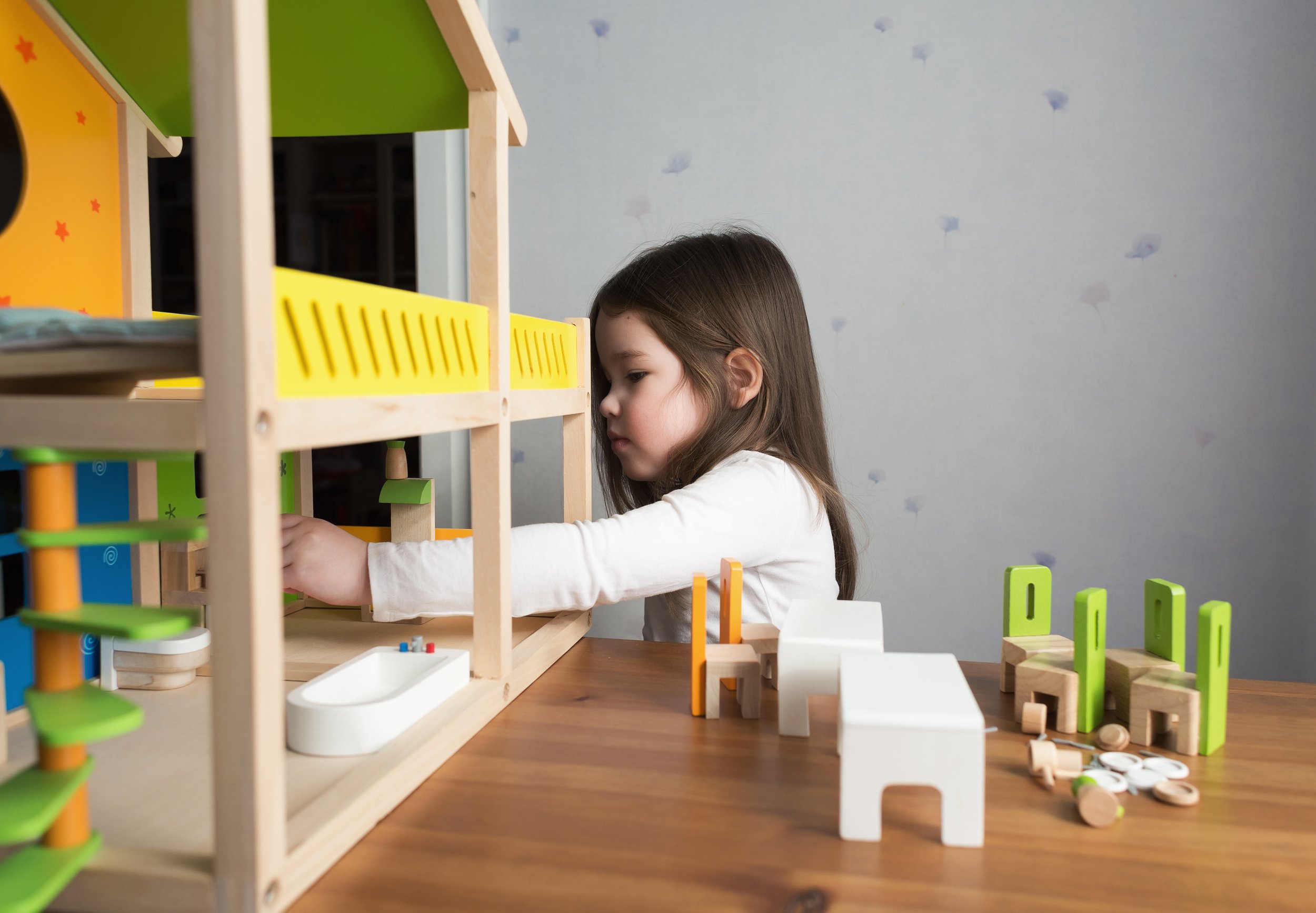What is Play Therapy? 5 Ways Play Therapy Can Help Your Child
What is Play Therapy?
You might wonder: What is play therapy?
Play therapy is a modality in which trained clinicians use the therapeutic powers of play to help children with their mental health needs. Play is a child’s natural language. It is how children express their innermost thoughts and feelings. Words do not always come easily to children because the language part of their brain is still developing. It would be extremely challenging for a child to sit across from a therapist and verbally express everything they are thinking, feeling, and experiencing. But if you put that same child in a room with toys and creative materials, they will show you through their play what is happening in their inner world.
How Does Play Therapy Work?
You also might wonder: Why can’t I just do play therapy with my child at home?
Several things set “playing at home” and play therapy apart. First, the therapeutic relationship sets the foundation for all future work. Play therapists must establish trust and a sense of safety with the child. Would you express your innermost thoughts and feelings to a stranger if you did not trust that person? Likely not. Play therapists build trust in a variety of ways, including showing empathy; accepting the child without conditions; and being genuine, warm, and friendly. As trust begins growing, the child can then begin feeling safe enough to express themselves.
Second, toys in a play therapy room are specifically chosen from several categories to empower a child to express a wide range of thoughts, feelings, and desires. Each toy in the play therapy room has a purpose.
Third, how the play therapist engages with the child during a session is based on the evidence-based theory that the therapist was trained in. So, what the therapist says, how toys are used, and what interventions are used, are all based on the theory that the play therapist adheres to. Play therapy is more than just asking a child to draw what they are feeling or playing a game. Purpose and rationale exist behind every action.
5 Benefits of Play Therapy
Finally, you might wonder: Why would my child need play therapy and how can it help them?
Play therapy has many benefits for children struggling with emotional or behavioral challenges, including, but not limited to, grief and loss; divorce and family dissolution; academic and social difficulties; developmental, physical, and learning disabilities; anxiety disorders; obsessive-compulsive disorders; depression; attention deficit hyperactivity; autism spectrum; oppositional defiant and conduct disorders; anger management; and crisis and trauma. Benefits include helping children to:
Express their thoughts and feelings;
Regulate their emotions and manage stress;
Build self-esteem;
Develop healthy relationships with peers and adults; and
Explore and work through difficult topics like grief and trauma in a way that is more comfortable than traditional talk therapy
Interested to learn more? Check out the following resources:
Association for Play Therapy’s Parent Corner https://www.a4pt.org/page/ParentsCornerHomePag

